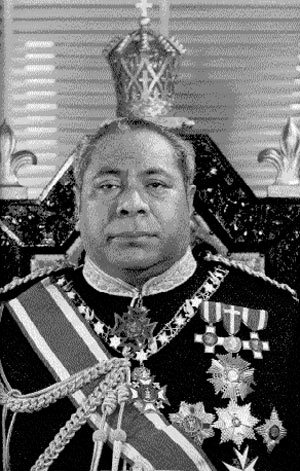Tonga - a brief history
Tongans have long pointed to the fact that theirs is the only Pacific Island country never formally 'colonised' by a foreign power. Settled around 1500BC, Tonga is also unique as the only remaining kingdom in Polynesia. For hundreds of years, the Tu’I Tonga (Tongan kings) ruled what historians have called a 'Tongan Empire' stretching from Tonga to Tikopia.
Said to be one of the most centralised and highly stratified societies in the Pacific, its chiefly system has been supremely aristocratic. Civil wars occurred in the 15th and 17th centuries with the latter period of internal unrest and a weakened traditional system coinciding with the arrival of European explorers, missionaries and merchants. Despite visits by Dutch explorers, including Abel Tasman in 1643, Captain James Cook in the 1770s, and Spanish Naval Officer Alessandro Malaspina in 1793, it was the arrival of the Wesleyan Methodist missionaries in the 1820s that had the greatest influence in Tonga. In 1831 Taufa’ahau, the ruler of Ha’apai was converted and after a succession of wars, in 1845 Taufa’ahau emerged as King George Tupou I, the leader of modern Tonga.
Challenged by European colonialism
In the 19th century Tonga was not immune to the encroachment and overtures of the European powers as they annexed and interfered in the other Pacific Island groups. Tonga was harassed by the French navy and forced into an unequal treaty with France in 1855. Germany, increasingly active commercially in the region, was keen to establish a coaling station on the island of Vava’u. King George took advantage of this interest and a treaty of friendship was concluded in 1876. The treaty not only recognised Tongan nationhood but also prompted Great Britain to seek a treaty on similar terms. A treaty of friendship with Britain was ratified in 1879.
British involvement
British involvement in Tongan affairs deepened and a new treaty of friendship resulted in Britain declaring Tonga a British protectorate in 1900. This followed protracted negotiations between the colonial powers over potential territorial spoils in the Pacific with the German annexation of Western Samoa and the United States annexation of eastern Samoa in 1899.
In the early 20th century Tonga continued to be governed by a monarchy which claimed the constitution gave it absolute powers. But the third monarch, Queen Salote Tupou III, respected the constitution more, not least because it protected her constitutional role as monarch and provided a stable framework within which she could exercise many of her traditional powers.
The arrangement with Britain under which Tonga was declared a British protectorate in 1900 gave the British 'Agent and Consul' virtual veto rights over most important matters of government. In 1970, a new agreement with Britain terminated this arrangement and Tonga, in its own words, “re-entered the comity of nations” as an independent monarchy within the British Commonwealth.
Pressure for political reform
In the late 20th century and the early years of the 21st century, pressure grew for political reform to move the country towards a form of government respecting the democratic rights of citizens.
The present monarch, King George Tupou V, has himself advocated and supported reform. A Constitutional and Electoral Reform Commission Act of 2008 appointed a commission of that name, with this purpose:
“This is an historic opportunity to build on HM King George V’s wish to devolve many of his powers to the Legislative Assembly and, by reform of the electoral process, grant the majority voice in the Assembly to the people of this country.”
Following electoral changes, Lord (or 'Noble') Tu’ivakano became Tonga’s first elected prime minister in November 2010 by winning the support of 14 of the 26 politicians in Tonga’s new parliament, edging out his only rival for the post, veteran pro-democracy campaigner 'Akilisi Pohiva, who secured 12 votes.
Significant events since independence
- September 2006 King George Tupou V becomes King of Tonga
- November 2006 Nukualofa riots cause fires and serious damage
- 2008 Constitutional and Electoral Commission created.
- November 2010 Lord (or 'Noble') Tu’ivakano becomes first elected Prime Minister.

HM King Taufa'ahau Tupou IV